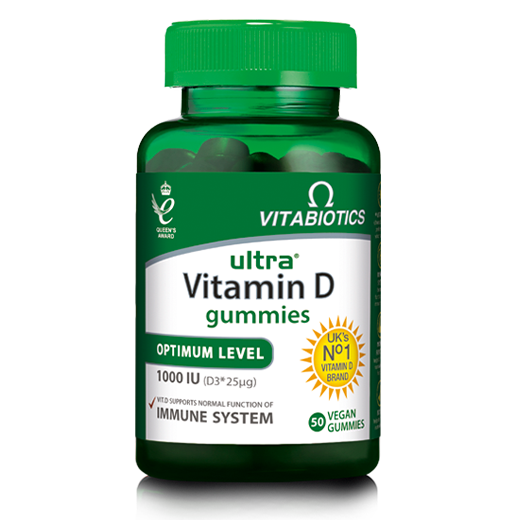It’s time to get clued up on vitamin D3
You might already know how important vitamin D is, however, what is less discussed are the various types of vitamin D.
This fat-soluble vitamin comes in two main forms: vitamin D2 and vitamin D3. Vitamin D2 is otherwise known as ergocalciferol and vitamin D3 is also known as cholecalciferol
Whilst both are necessary, it is vitamin D3 that carries the health hero crown as our bodies use and absorb this type far more effectively than vitamin D2. Vitamin D3 is made when our skin is exposed to sunlight.
But Why Do We Need Vitamin D?
There are lots of reasons we need vitamin D. Vitamin D helps with the absorption and use of calcium and phosphorus, to maintain the health of our bones, muscles and teeth and supports the normal function of the immune system. Vitamin D also contributes to normal blood calcium levels.
Where Does Vitamin D Come From?
It is tricky to get your daily recommendation of vitamin D through diet alone, which is why it is often dubbed the ‘sunshine vitamin’; we get most if not all of our vitamin D3 from sunlight.
In the UK though, there is not enough sunlight throughout the autumn and winter months, so the UK Department of Health and Social encourages us to consider taking a daily supplement. More recently, with people spending so much more time indoors, this advice has been extended to all the year round.
It is possible to get some vitamin D through food, but the list of foods that offer it is far from substantial. In the UK, an average diet provides 3-4µg of vitamin D per day and only a little more if oily fish is consumed.
If you do want to improve your vitamin D status through diet, there are some foods rich in vitamin D which can help. These include:
- Oily fish and fish oil
- Liver
- Egg yolk
The Difference Between Vitamin D2 And Vitamin D3
In simple terms, vitamin D3 comes primarily from animal sources and vitamin D2 comes from plants and fungi. Vitamin D3 is the preferred form of vitamin D as it is actually made in the human body when we’re exposed to sunlight.








Comments (0)